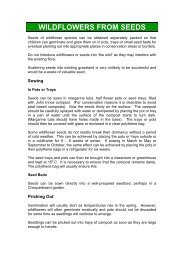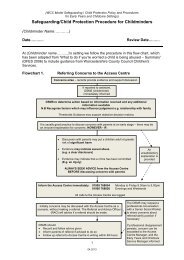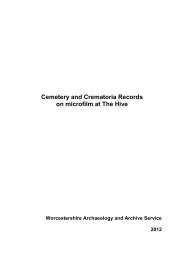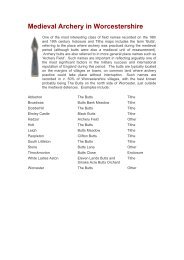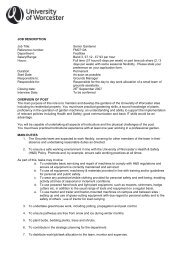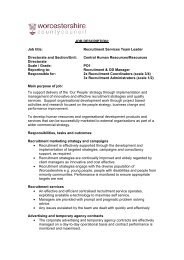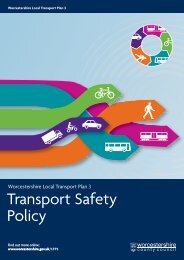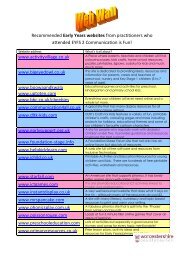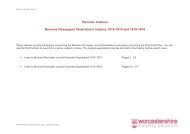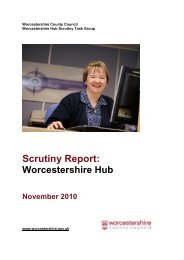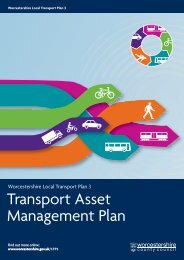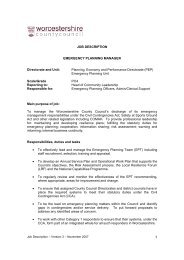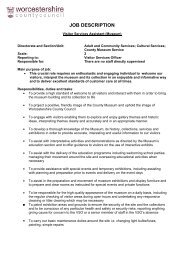Integrated Passenger Transport Policy - Worcestershire County ...
Integrated Passenger Transport Policy - Worcestershire County ...
Integrated Passenger Transport Policy - Worcestershire County ...
- No tags were found...
Create successful ePaper yourself
Turn your PDF publications into a flip-book with our unique Google optimized e-Paper software.
2.1.6 In <strong>Worcestershire</strong>, the bus fleet is highly variable in terms of age, capacity, quality and levels ofcomfort provided. All buses in <strong>Worcestershire</strong> at the time of writing are fuelled with either diesel orpetrol. The majority of buses are single-deck vehicles, with the newest vehicles operating in the main,but not exclusively, on the high frequency (most profitable) routes. On more marginal routes, therolling stock is generally either older bus or coach stock which has 'retired' from more intensive useon urban or interurban routes. The newer vehicles tend to have low-floor capability and aredesigned to maximise passenger comfort. Double Decker vehicles are operated in Redditch and on anumber of selected school routes in <strong>Worcestershire</strong>; although <strong>Worcestershire</strong>'s generallyconstrained, historic urban street patterns are not suited to Double Decker or articulated vehicleoperation.2.1.7 The Worcester City Park and Ride routes (operated by <strong>Worcestershire</strong> <strong>County</strong> Council) use vehicleswhich meet the Euro V standard emissions. The <strong>County</strong> Council continues to encourage operators torenew older vehicles with modern fleet with cleaner, more efficient engines using a variety ofincentives.2.1.8 The taxi and community transport vehicle fleet in <strong>Worcestershire</strong> is highly variable in terms ofquality, capacity and comfort. Community transport vehicles are particularly variable, given theirspecific financial constraints and specialist requirements. These range from vehicles that arespecifically designed for purpose, such as those used by Worcester Wheels and Redditch Dial-a-Ride,to privately owned cars, such as those used by Bromsgrove Dial-a-Ride. Taxis in <strong>Worcestershire</strong> arerequired by the licensing authorities (District Councils) to have passed an MOT and to be in areasonable condition for public service. However, many taxi operators use specially procured peoplecarriers and black cabs, which, although more expensive than standard cars, can carry more personsand have additional luggage space.2.2.1 <strong>Worcestershire</strong> has a significant stock of passenger transport infrastructure, maintained by a varietyof organisations and agencies.2.2.2 Railway infrastructure in <strong>Worcestershire</strong> represents the majority of the "dedicated" passengertransport infrastructure in the <strong>County</strong>. In general, the majority of <strong>Worcestershire</strong>'s stations are'heritage' structures, which, although generally well maintained, often fall short of modernexpectations for comfort and ease of use. Urban integration with the rail network is generally good,with all of the larger settlements benefitting from access to the rail network.



